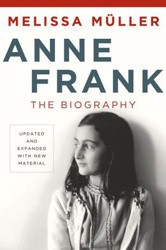By
– August 31, 2011
The second part of the memoirs of Anne Frank’s childhood friend weaves together her own wartime and post-wartime recollections and the process through which the author of one of the world’s most famous diaries achieved almost mythical status as a symbol of the Holocaust. Van Maarsen has been invited to speak about her friend in places as far-flung as Connecticut and Japan.
It is chilling to know the different fates the two friends met: Frank dying of typhus in Buchenwald after hiding in the Secret Annex and van Maarsen saved because her mother was able to prove the non-Jewish status of her children. With an abiding affection and admiration for Frank, van Maarsen deplores the commercialization of her friend’s legacy. She is even more disturbed, however, by those who capitalize on that fame dishonestly — including one woman in particular who claimed a friendship with Frank van Maarsen says never existed.
Unfortunately, we are never given Eva Schloss’s side of the story. But the greater issue is that van Maarsen herself cannot escape her friend’s “celebrity.” Readers may find themselves skipping those sections of the book that don’t deal with Frank. The truth is, without that connection, van Maarsen’s story as written is not as compelling.
It is chilling to know the different fates the two friends met: Frank dying of typhus in Buchenwald after hiding in the Secret Annex and van Maarsen saved because her mother was able to prove the non-Jewish status of her children. With an abiding affection and admiration for Frank, van Maarsen deplores the commercialization of her friend’s legacy. She is even more disturbed, however, by those who capitalize on that fame dishonestly — including one woman in particular who claimed a friendship with Frank van Maarsen says never existed.
Unfortunately, we are never given Eva Schloss’s side of the story. But the greater issue is that van Maarsen herself cannot escape her friend’s “celebrity.” Readers may find themselves skipping those sections of the book that don’t deal with Frank. The truth is, without that connection, van Maarsen’s story as written is not as compelling.
Barbara Trainin Blank is a freelance journalist and arts previewer/reviewer, as well as sometime playwright based in Harrisburg, PA.





